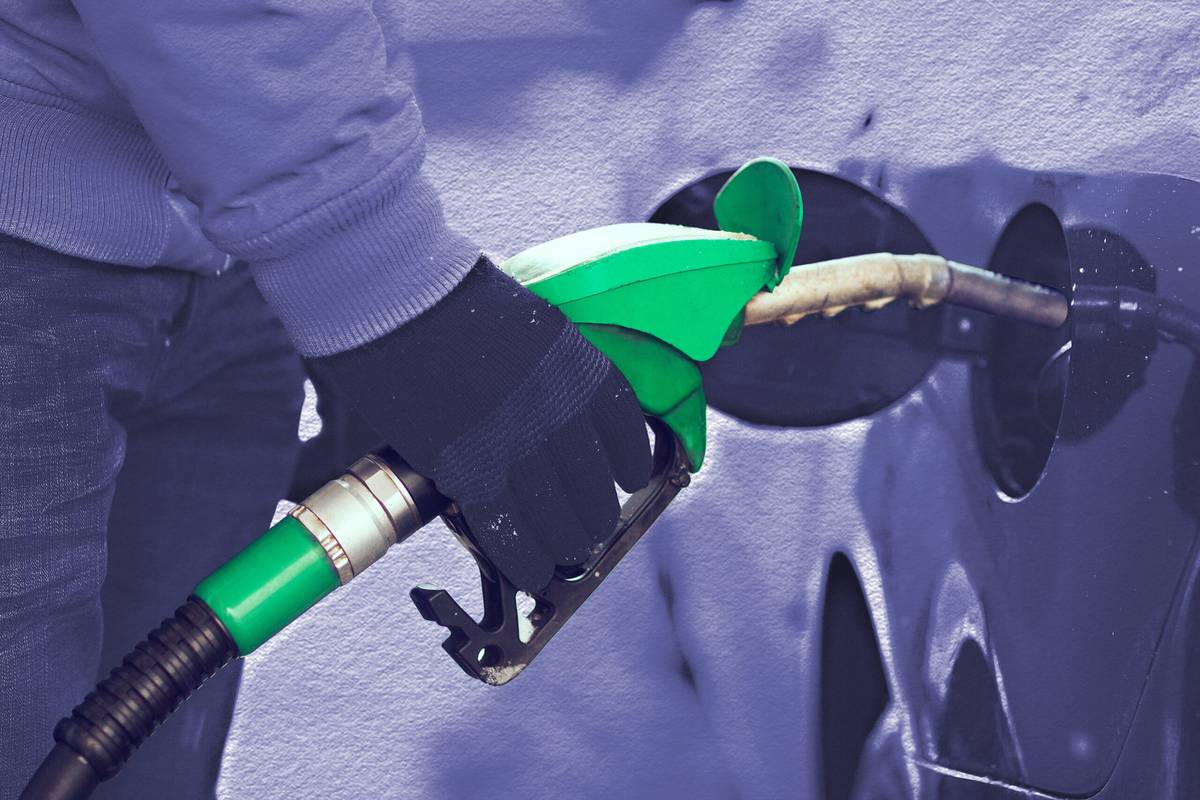How Does Cold Weather Affect Diesels?

Cold weather adversely affects diesel engines more than gas engines, but that’s only partly due to the engine itself. Diesel engines are inherently harder to crank over to start than gas engines, and things only get worse in cold weather; in fact, it’s estimated that a diesel is five times harder to start at zero degrees Fahrenheit than at 80 degrees. Furthermore, there are other factors in play that affect diesel fuel.
Related: Pickup Trucks 101: Gas Vs. Diesel, Which Is Better?
A Tighter Squeeze
Diesel engines use hot air to ignite the fuel rather than a spark like in gas engines, and that hot air comes from compression. Air heats up as it’s compressed, and to get the air hot enough to ignite fuel, a diesel uses a much higher compression ratio than does a gas engine — typically about twice as high. That makes it harder for the starter motor to crank over the engine, which in turn requires more electrical energy from the battery. Because of this, many diesels, at least in large pickup trucks, have two batteries.
Aggravating the situation is that cold weather causes batteries to lose much of their power. In fact, it’s been estimated that a battery loses 60% of its power at zero degrees Fahrenheit compared to when it’s 80 degrees. While this affects gas engines as much as it does diesels, the latter puts additional strain on the battery in cold weather.
Since compression alone may not be enough to get cold air hot enough to ignite fuel, diesels often have glow plugs that help to heat up the cylinder some before the engine is started. Positioned at the top of the cylinder, a glow plug is really just a small electric heater, and heating it up takes — you guessed it — battery power. So the battery in a diesel has to pump out a little power in cold weather before it even tries to crank over the engine.
Cold temperatures also make oil thicker, which increases friction between moving parts, making it harder to pump the oil through the engine. (This also affects gas engines in the same manner.)
Fuel Problems
Also affecting both gas and diesel engines is water in the fuel. Cold weather can cause air to condense in the fuel tank and form water droplets, which can mix with the fuel and freeze in the fuel lines, clogging them up. Keeping your tank at least half full — or using a fuel additive that helps prevent fuel lines from freezing — can be a big help.
But diesels have another fuel-related problem that doesn’t affect gas engines. “Regular” No. 2 diesel fuel contains paraffin wax to aid combustion efficiency. Unfortunately, cold weather can make the wax turn into a gel-like substance that can restrict or clog fuel lines and filters. During cold weather, filling stations sometimes switch from No. 2 diesel fuel to No. 1 diesel, which is sometimes called “winter diesel” and is more refined and more expensive but less likely to gel; stations may also offer a combination of the two based on temperature.
To help prevent diesel fuel from gelling, you can also put in your own anti-gel additive, but it’s best to put it in before filling the tank so that it mixes well with the fuel and before the temperature drops below freezing. Thus, if you don’t think ahead or don’t fill up very often, you may have a tank full of No. 2 diesel put in during the fall that can end up gelling in January.
More From Cars.com:
- Top 10 Facts About Diesel Exhaust Fluid
- Why Do Cars Stall in Cold Weather?
- Pickup Truck Buying Guide: How Much Truck Do You Need?
- Shop for a Diesel Vehicle
- More Service Articles
Then There’s DEF
Some newer diesels add yet another concern.
Many diesel-powered vehicles starting around the 2010 model year have to use diesel exhaust fluid in order to meet emissions standards. DEF is injected into the exhaust stream, so it doesn’t directly affect the starting or running of the engine. The trouble is, DEF is mostly water and can freeze at about 12 degrees Fahrenheit, and diesel vehicles are designed so that the engine won’t start if the DEF tank is empty.
While cold weather typically doesn’t affect DEF that’s already in the vehicle’s tank (which may include a heater), it can affect DEF stored in your garage. If you wait until your vehicle’s DEF tank is empty or nearly so and go to fill it with DEF that’s been sitting in your cold garage, you’re going to be out of luck if it’s frozen.
In cars and particularly large pickup trucks, diesel engines are known for their fuel efficiency and pulling power, but that doesn’t come without some added cost … and potential headaches.
Related Video:
Cars.com’s Editorial department is your source for automotive news and reviews. In line with Cars.com’s long-standing ethics policy, editors and reviewers don’t accept gifts or free trips from automakers. The Editorial department is independent of Cars.com’s advertising, sales and sponsored content departments.
Featured stories




